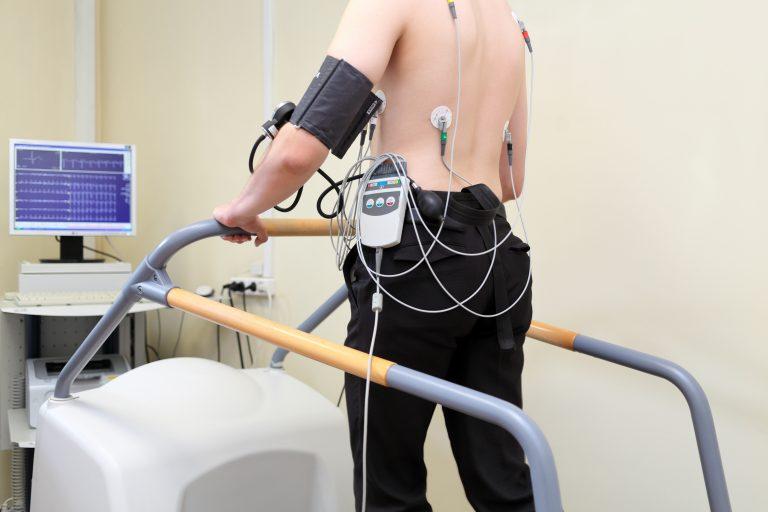Treadmill Test Cost in Bangalore
When it comes to assessing heart health, the treadmill stress test is one of the most widely recommended diagnostic tools. If you’re considering this test, you may want to understand details like procedure, preparation, benefits, and expenses. For those exploring the treadmill test cost in Bangalore, it’s equally important to learn why this test matters and how it can provide crucial insights into your cardiovascular condition.
This article will walk you through everything you need to know—from how the test is performed to what patients can expect during and after the procedure.
What is a Treadmill Stress Test?
A treadmill stress test, often called an exercise stress test, evaluates how well your heart functions during physical exertion. While resting ECGs are useful, they may not always reveal issues that only appear when the heart is working harder.
During this test, you walk (and sometimes run) on a treadmill while your heart rate, blood pressure, and ECG readings are continuously monitored. It’s a safe, controlled way for cardiologists to detect hidden heart problems, irregular heart rhythms, and blocked arteries.
Why is a Treadmill Stress Test Important?
A treadmill test is typically recommended for patients who:
-
Experience chest pain or shortness of breath during exertion.
-
Have an irregular heartbeat that requires closer monitoring.
-
Need to evaluate their exercise tolerance before starting a fitness plan.
-
Require follow-up after cardiac treatments like angioplasty or bypass surgery.
It’s also a preventive test for individuals with a family history of heart disease or risk factors such as diabetes, hypertension, or obesity.
How is the Test Performed?
The treadmill test is a straightforward process that generally lasts 15–30 minutes. Here’s what happens:
Step 1: Preparation
-
Electrodes are attached to your chest to record your heart’s activity.
-
A baseline ECG and blood pressure reading are taken.
Step 2: Exercise Phase
-
You begin walking on a treadmill at a slow speed.
-
Gradually, both the speed and incline increase every few minutes.
-
You are asked to continue until you reach your target heart rate, experience symptoms, or the doctor decides enough data has been collected.
Step 3: Recovery Phase
-
Once the treadmill stops, your heart rate and blood pressure are monitored until they return to normal.
The results help doctors evaluate if there is reduced blood flow to the heart or any irregular rhythms triggered by exertion.
Preparation Before the Test
-
Wear comfortable clothing and walking shoes.
-
Avoid caffeine, alcohol, and heavy meals for at least 3 hours before the test.
-
Some medications may need to be paused—always consult your doctor.
-
Carry previous medical records and ECG results if available.
Benefits of a Treadmill Stress Test
-
Non-invasive: No needles or surgical procedures required.
-
Quick results: Doctors can often interpret findings immediately.
-
Cost-effective: More affordable compared to advanced imaging.
-
Predictive: Helps estimate risk of heart attacks or coronary artery disease.
Risks and Safety
The treadmill test is considered very safe, with minimal risks. Rarely, patients may experience dizziness, chest pain, or irregular heartbeats during the test. That’s why it is always conducted under medical supervision, with emergency equipment available if needed.
Who Should Avoid the Test?
While safe for most, certain patients may not be ideal candidates, such as:
-
Those with severe hypertension.
-
Individuals recovering from a recent heart attack.
-
Patients with serious heart rhythm abnormalities.
In such cases, doctors may recommend other diagnostic tests like echocardiography or nuclear stress tests.
Understanding the Expenses
The price of a treadmill stress test can vary depending on the diagnostic center, location, and additional consultations included. While affordability is a factor, patients should prioritize accuracy and expertise of the facility when choosing where to undergo the test.
Final Thoughts
Whether recommended by your doctor or sought proactively, this diagnostic procedure plays a vital role in identifying hidden cardiovascular issues early. Being informed about the treadmill test cost in Bangalore allows you to plan better while prioritizing your health. Choosing a reliable diagnostic center ensures both accurate results and peace of mind.
Frequently Asked Questions (FAQs)
1. What is the purpose of a treadmill stress test?
It helps evaluate how well your heart functions during physical activity, detecting problems like poor blood flow or abnormal rhythms.
2. How long does a treadmill stress test take?
The actual test takes around 15–30 minutes, but including preparation and recovery, you should expect about an hour.
3. Is the treadmill stress test painful?
No, it isn’t painful. You may feel tired or slightly breathless, similar to a brisk walk or light jog.
4. Do I need to fast before the test?
You don’t need to fast completely, but avoid heavy meals, caffeine, and smoking at least 3 hours before the test.
5. Can I continue my medications before the test?
Some heart medications may affect results. Always consult your doctor before making any changes to your routine.
6. What conditions can a treadmill stress test detect?
It helps diagnose coronary artery disease, exercise-induced arrhythmias, and evaluate overall cardiovascular fitness.
7. Are there alternatives if I cannot do treadmill exercise?
Yes, a pharmacological stress test can be used, where medications simulate the effect of exercise on your heart.
8. How accurate is a treadmill stress test?
It is fairly accurate but not definitive. Doctors may recommend additional imaging if results are inconclusive.
9. Can seniors undergo this test?
Yes, seniors can take the test if they are physically able. Doctors may modify the protocol to suit age and fitness levels.
10. How soon will I get the results?
In most diagnostic centers, results are available immediately after the test and explained by the cardiologist.



